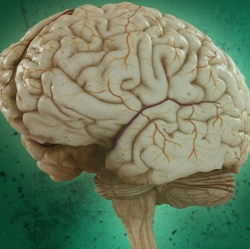
Researchers have switched off consciousness by electrically stimulating a single brain area. Scientists have been probing brain regions for over a century, exploring their function by zapping them with electricity, temporarily putting them out of action. However, they have never been able to turn off consciousness, until now.
Although only tested in one person, the discovery suggests that a single area, the claustrum, might be integral to combining disparate brain activity into a seamless package of thoughts, sensations and emotions. It takes us a step closer to answering a problem that has confounded scientists and philosophers for millennia, namely how our conscious awareness arises.
Many theories abound but most agree that consciousness has to involve the integration of activity from several brain networks, allowing us to perceive our surroundings as one single unifying experience rather than isolated sensory perceptions.
One proponent of this idea was Francis Crick, a pioneering neuroscientist who earlier in his career had identified the structure of DNA. Just days before he died in July 2004, Crick was working on a paper that suggested our consciousness needs something akin to an orchestra conductor to bind all of our different external and internal perceptions together.
